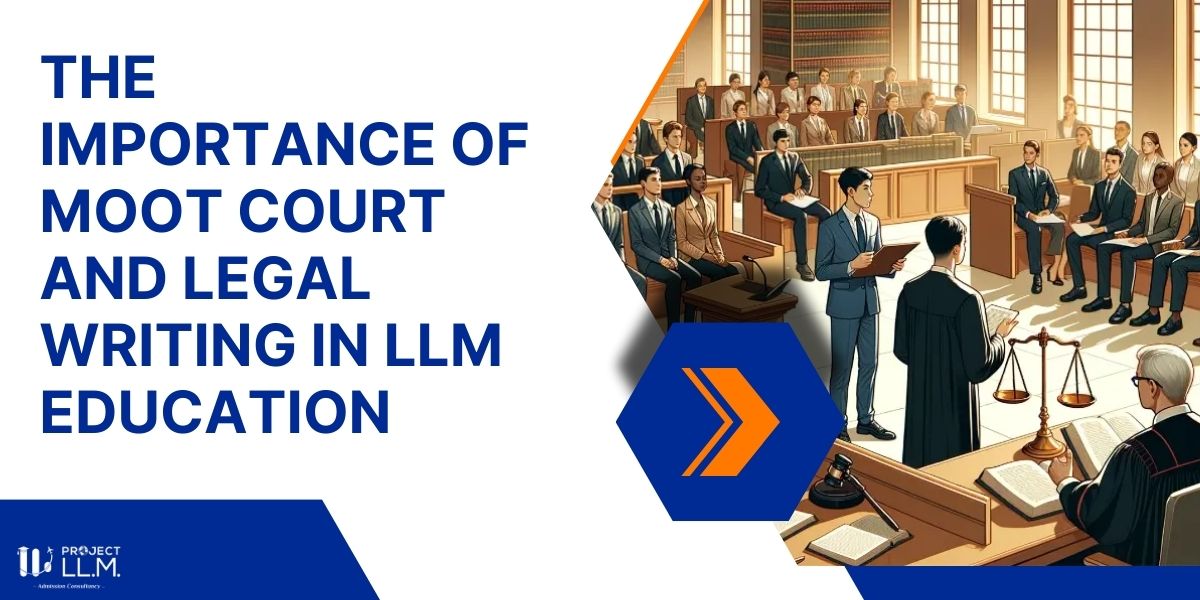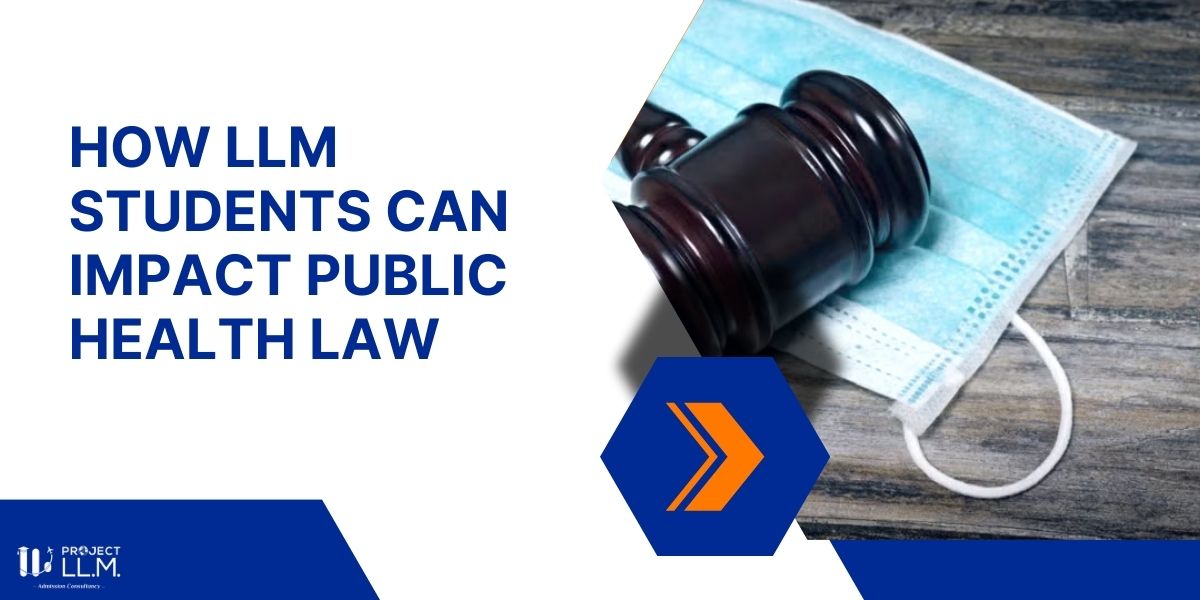Pursuing an LLM (Master of Laws) offers students the opportunity to deepen their legal expertise and specialize in various fields of law. However, beyond theoretical knowledge, the development of practical legal skills is essential for success in the legal profession. Two of the most important practical skills emphasized in LLM programs are moot court and legal writing. These components prepare students for real-world legal challenges by honing their advocacy, communication, and analytical skills. This blog explores the significance of moot court and legal writing in LLM education and how they contribute to the academic and professional development of students.
Understanding Moot Court
Moot court is a simulated legal competition in which students argue hypothetical cases before a panel of judges. It is an essential part of many LLM programs and offers students a hands-on experience to practice their advocacy skills in a controlled, competitive environment.

Developing Advocacy Skills
Moot court is an excellent way to develop key advocacy skills that are crucial for any legal career. These competitions require students to present legal arguments, respond to judges’ questions, and defend their positions on complex legal issues. Some of the primary skills that moot court helps develop include:
- Oral Communication
Moot court is a platform for students to practice their oral communication skills. The ability to articulate arguments clearly and persuasively is central to legal practice. Students learn how to present their case succinctly while engaging the judges. - Argumentation and Persuasion
Effective legal argumentation is an essential skill. Moot court enables students to construct compelling arguments and present them in a way that persuades the judges. This skill is fundamental in litigation and other legal contexts. - Quick Thinking and Adaptability
One of the defining aspects of moot court is its unpredictability. Judges often ask challenging questions or require immediate responses to unforeseen issues. This forces students to think quickly and adapt their arguments on the spot, simulating real-life legal practice.
Simulating Real Courtroom Experience
Moot court provides students with a simulated but realistic courtroom experience, offering valuable insight into the dynamics of actual court proceedings. While it may not replicate the entire trial process, it gives students a sense of courtroom etiquette, legal strategies, and client representation.
- Courtroom Etiquette
Students learn about the formalities and expectations of courtroom behavior, such as addressing the bench respectfully and following the structure of legal proceedings. These experiences help students develop the professionalism required in actual court settings. - Legal Strategy
Moot court challenges students to formulate and execute legal strategies. They must determine which arguments to emphasize and how to present their case to maximize their chances of success. This is a valuable skill for future legal practice. - Client Representation
Moot court allows students to practice representing their clients’ interests. Students develop arguments tailored to the facts of the case and the legal issues at hand, which mirrors the work done in legal practice when advising clients or appearing in court.
Legal Writing: The Foundation of Legal Practice
While moot court focuses on oral advocacy, legal writing plays an equally critical role in shaping an LLM student’s legal abilities. Legal writing is essential for drafting legal documents, such as briefs, contracts, and memos, which require clarity, precision, and persuasive argumentation.
Crafting Legal Documents
Legal writing teaches students the importance of crafting well-organized, clear, and precise documents. In legal practice, the ability to write effectively is critical, as even minor errors in writing can have significant consequences. Key aspects of legal writing include:
- Legal Research
Before writing any legal document, students must conduct extensive legal research. Legal writing courses guide students on how to identify and apply relevant statutes, cases, and legal principles. This ensures that their arguments are based on sound legal foundations. - Structure and Organization
The structure of legal documents is crucial. Legal writing courses teach students how to organize their arguments logically, ensuring that each section of the document flows coherently and persuasively. A well-structured document is easier to understand and more effective in persuading the reader. - Attention to Detail
In legal writing, precision is key. A small mistake in citation, grammar, or legal analysis can undermine the credibility of the entire document. LLM programs emphasize the importance of attention to detail, helping students learn how to meticulously review and revise their work.
Argumentation in Writing
Just as moot court focuses on oral argumentation, legal writing is an exercise in persuasive legal analysis. Writing persuasive legal documents requires students to present coherent arguments supported by legal authority. Key skills in legal writing include:
- Issue Spotting
A crucial component of legal writing is the ability to identify the key issues in a case. Students are trained to spot the legal questions that need to be addressed and present them clearly in their writing. - Logical Reasoning
Legal writing teaches students how to build a logical argument based on facts and legal principles. Students must ensure that their analysis follows a coherent structure, leading the reader to a persuasive conclusion. - Balance of Tone
Legal writing also requires maintaining an appropriate tone. While legal arguments must be persuasive, they must also be professional and objective. Striking the right balance ensures that the document remains credible and well-received.
The Role of Moot Court and Legal Writing in LLM Career Development
Both moot court and legal writing contribute significantly to the career development of LLM students. These skills are highly valued by potential employers, as they demonstrate the ability to perform key tasks required in legal practice.
Building a Competitive Edge
In a competitive legal market, practical skills such as advocacy and legal writing are essential. Many employers—whether law firms, government agencies, or international organizations—look for candidates who can demonstrate the ability to argue cases and write high-quality legal documents. Experience in moot court and legal writing can help LLM graduates stand out among their peers, making them more attractive to employers.
Networking Opportunities
Moot court competitions often take place at regional, national, or international levels, attracting participants from around the world. These competitions provide networking opportunities, allowing students to interact with legal professionals, judges, and potential employers. The exposure gained in these settings can lead to internships, job offers, and collaborative opportunities.
Building Confidence and Public Speaking Skills
Both moot court and legal writing contribute to the development of confidence. Moot court helps students become more confident in public speaking, enabling them to present arguments effectively in front of judges. Legal writing builds confidence in written communication, ensuring that students can articulate their ideas clearly and persuasively in a professional setting.
Moot court and legal writing are essential components of LLM education that help students bridge the gap between academic learning and practical legal skills. Through moot court, students develop their oral advocacy skills, learn courtroom strategies, and practice client representation. Legal writing, on the other hand, refines students’ ability to craft clear, persuasive legal documents, which is critical for success in any legal career.
Together, these practical skills prepare LLM students for the challenges of the legal profession. By excelling in moot court and legal writing, students gain a competitive edge in the job market, build a strong professional network, and develop the confidence necessary to succeed in various legal roles. Whether pursuing a career in litigation, corporate law, or academia, the skills developed through moot court and legal writing will serve as a foundation for long-term professional success.
FAQs
What is the significance of moot court in LLM education?
Moot court helps LLM students develop key advocacy skills, such as oral communication, argumentation, and quick thinking in a simulated courtroom environment.
How does legal writing benefit LLM students?
Legal writing teaches LLM students to draft clear, precise, and persuasive legal documents, enhancing their research, analytical, and communication skills.
How do moot court and legal writing contribute to career development in law?
Both moot court and legal writing help LLM students build a competitive edge by demonstrating essential skills like oral advocacy and legal drafting, which are highly valued by employers.



